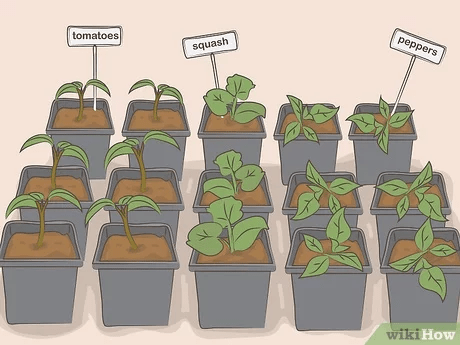
Organic gardening can be a very enjoyable hobby. It involves particular growing techniques, along with the gardener’s choice of equipment and seeds. This vast world has so many different kinds of seeds, equipment, and techniques that it can seem a bit confusing as to where you need to begin. These tips can help you make sense of the confusion.
If you have a young baby, consider wearing your child in a backpack while you garden. Being outdoors is a great stimulating experience for an infant, plus they get to spend more time with you. Organic gardening is safest for baby, as there is no risk of them encountering harsh or dangerous chemicals while you work.
When starting your organic garden, a great tip is to figure out which vegetables you should pick to plant in your garden. Some vegetables are better suited for home germination than others are. Some great vegetables to consider planting include broccoli, cabbage, cauliflower, lettuce, peppers, onions, tomatoes, basil, and more.
Make mulch spreading easier with the right tools. After laying out the mulch, use a flat-headed rake to efficiently spread the manure around. The tines of the rake help pull the mulch and spread it, while the flat side of the rake evens out the area. Use the rake with a pushing and pulling motion.
Health
Composting for organic gardening reduces the need for fertilizers, is a form of herbicide, can help prevent plant diseases and helps impact the environment in positive ways. Composting is a source of nutrition for insects, helps with soil erosion and reduces waste sent to landfills. It is wonderful for the health of the environment in general.
If you have a compost pile, but have very few leaves to add to it this fall, try incorporating straw or hay into your compost pile. This is a great way to add carbon which is very beneficial to the growth and health of plants. The straw and hay may contain seeds, so it is best to use an organic weed spray on your compost pile to get rid of the unwanted weeds.
Treatment
Apply baking soda and water to your plants regularly. Just mix the two ingredients in a spray bottle and mist the leaves of your plants. This mixture acts as a natural anti-fungal treatment. Harmful pesticides can be avoided if you use a baking soda mixture at least twice a week.
When it comes to taking care of an organic garden, then you need to opt for organic pest control. This is a comprehensive approach versus that of using chemicals. Try creating a healthier biodiversity so that you can help control the insects. When you use natural products and build healthier soil, you have the best long-term treatment for insects.
Vegetable
If you want to grow vegetables, but do not have the room, consider planting vegetables that grow on a vine. Vegetables like squash, melons, and tomatoes can be trained to grow up along a trellis or fence. You can make use of vertical space to get the vegetable garden that you want.
Plant your own seeds to guarantee organic produce. Sowing your own vegetable seeds gives you the comfort and assurance that your produce has been grown organically from seed to table. Choose plants that are easy to germinate such as broccoli, cabbage, basil and tomatoes. Find out the best time of the year to sprout your chosen produce.
While organic gardening can be a personal hobby for everyone, it does share the main goal of wanting to grow healthy and happy organic plants. As you have seen in these tips, there are various approaches, but they all share the goal of being a successful organic gardener.
